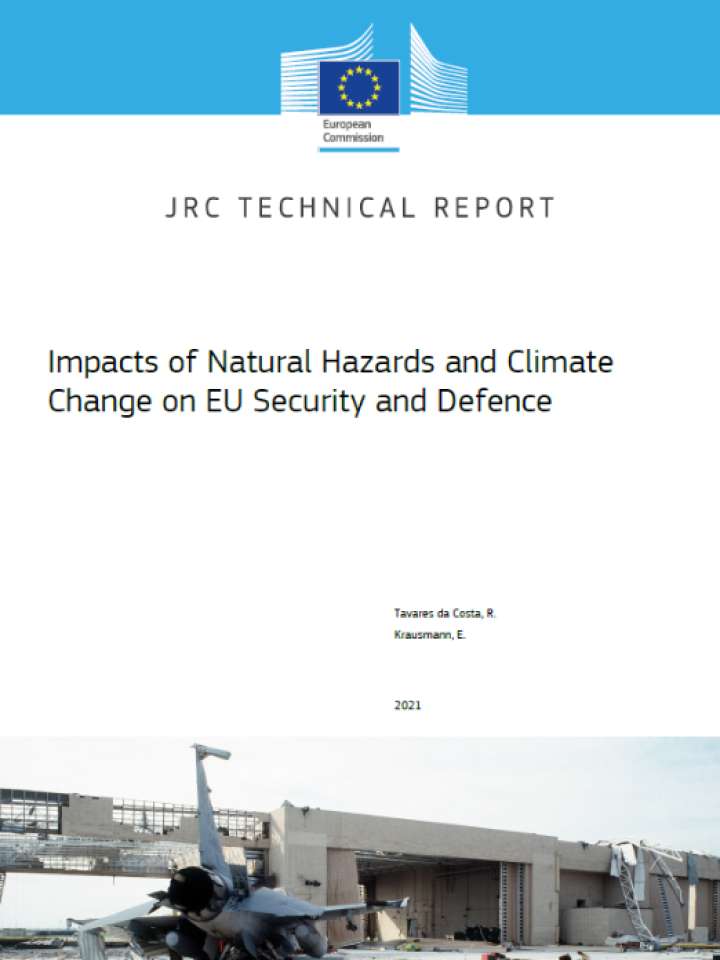Impacts of natural hazards and climate change on EU security and defence
This report is the result of the study conducted by the European Commission’s Joint Research Centre to: (1) Expand the understanding of the impacts of natural hazards and climate change on future European Union (EU) security and defence; (2) Identify existing gaps and limitations in the path towards resilience to natural hazards and climate change of the military in Europe; (3) Recommend concrete actions to strengthen resilience, climate neutrality and environmental sustainability aspirations of the military, while safeguarding operational effectiveness. Natural hazards and climate change can negatively affect military installations, military assets, supplies and operations and are a growing concern to EU security and defence. In addition to direct impacts on installations, including community infrastructure and utilities used by the military (e.g., roads, bridges, energy, water), they can also affect military capability and mission execution, for example via increased demand for military support activities, both domestically and internationally, and through causing increased tensions, country instability and conflict escalation.
The study indicated that neglecting natural hazards and climate change in the context of EU security and defence can have major consequences, with implications that may extend beyond the military. The study highlighted multiple existing gaps related to policy, knowledge, methods and tools, as well as practices that should be addressed to better prepare the military for the likely direct and indirect consequences of a warming climate. In addition, it discusses possible structural, non-structural and nature-based solutions per natural hazard at a local scale and proposes short-, medium- and long-term measures at European scale with a view to help EU defence stakeholders to pick up momentum in their path towards resilience, carbon neutrality and environmental sustainability.
Explore further
